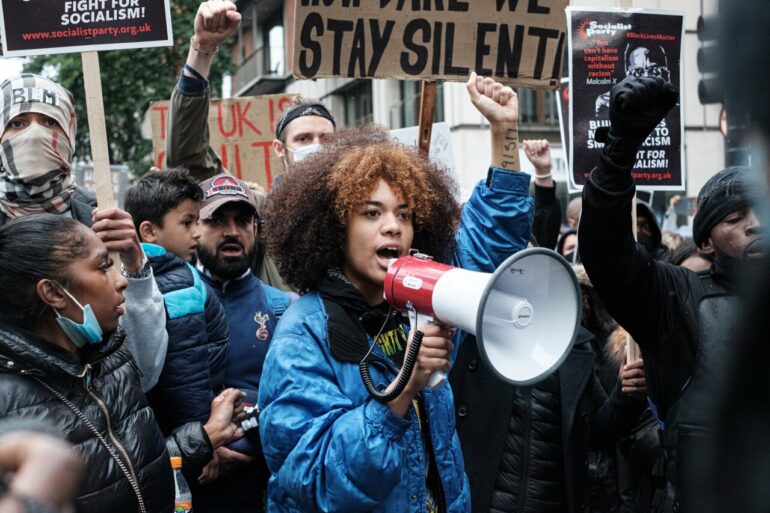The Washington, D.C. demonstrations that followed George Floyd’s death mark some of the most racially diverse protests against racial injustice. University of Maryland Professors Dana R. Fisher and Stella Rouse find that these participants were not only motivated by systemic racism, but also by other salient issues that were specifically tied to their personal identities, according to research published today in the Proceedings of the National Academy of Sciences.
Fisher and Rouse’s research is the latest to demonstrate the ways that movements expand through the solidarity of activists motivated by their individual identities. Specifically, many activists were mobilized to organize for causes that overlap with issues important to them and connected to their personal identities, like women’s rights, LGBTQ rights, and immigration rights.
“By resonating with individuals’ subgroup identities, our paper shows how movements can mobilize a more diverse crowd,” said Fisher, a faculty member in the Department of Sociology. “The protests after George Floyd was murdered in summer 2020 were the largest sustained mobilization in American history. This type of sustained and diverse activism has real potential to motivate great social change.”
Almost all participants were motivated to participate in the protests by issues related to systemic racism, the authors found. Consistent with prior research, however, many individuals were also motivated by other issues: One-third of respondents said they were likewise motivated to participate in the wave of protests after George Floyd was murdered because they are motivated to support women’s rights (39%), LGBTQ rights (36%), and immigration rights (29%).
In addition, the authors found the Pro-Women Motivation to be associated with increased LGBTQ and Immigration motivations, the LGBTQ Motivation to be predicted by Pro-Women and Immigration motivations, and the Immigration Motivation to be strongly associated with Pro-Women and LGBTQ motivations.
“The significant role that intersectionality played in motivating participants to take part in protests against racism in 2020 is an important finding. It demonstrates that there is an opportunity for protest movements to tap into individuals’ identities of social justice to increase diverse participation,” said Rouse, a faculty member of the Department of Government and Politics.
More information:
Dana R. Fisher et al, Intersectionality within the racial justice movement in the summer of 2020, Proceedings of the National Academy of Sciences (2022). DOI: 10.1073/pnas.2118525119
Provided by
University of Maryland
Citation:
Study finds wave of activism after George Floyd’s murder drew from multiple issues, identities (2022, August 29)
